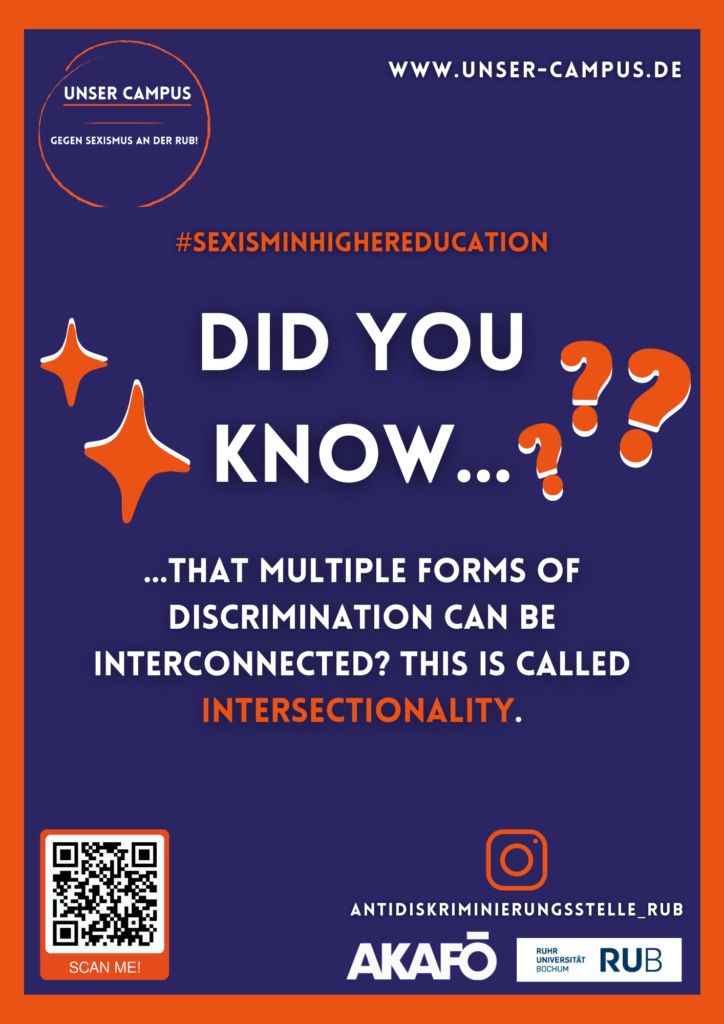This intertwining is known as intersectionality. The concept was coined by the US human rights activist Kimberlé Crenshaw in the 1990s. In her influential essay „Mapping the Margins: Intersectionality, Identity Politics and Violence against Women of Color,“ published in 1991, Crenshaw highlights how black women face disadvantages in court not only because of their gender but also due to racial biases among judges and juries (Crenshaw, 1991).

In simple terms: Sexism isn’t always just about gender, and discrimination seldom occurs in isolation. A person can face disadvantages and discrimination not only because of their gender but also because of other factors like sexual orientation, ethnicity, socioeconomic background, disabilities, and chronic illnesses.
This is backed up by statistics: The NaDiRa study (National Discrimination and Racism Monitor) commissioned by the German government reveals that racism affects black women in Germany the most (19%) (NaDiRa, 2023). This phenomenon, also called „gendered racism,“ leads to Women of Color being perceived as less competent overall and reduces their chances of landing well-paid jobs (NaDiRa, 2022).
Multiple intersecting layers of discrimination are also present in universities. For example, the Europe-wide Unisafe study conducted in 2022 found that, on average, 62 percent of students surveyed experienced discrimination during their studies. LGBTQIA* students (68%), students with disabilities or chronic illnesses (72%), and students from ethnic minorities (69%) were among the most affected.
To promote diversity and combat discrimination effectively, we need to recognize that sexism is just one part of a broader web of disadvantages. This is especially important at universities such as Ruhr-University Bochum, where the experiences of students are as diverse as our campus itself. By embracing intersectionality, we can create more inclusive spaces on campus to share a multitude of perspectives.
Interested in learning more? Organizations at Ruhr-University Bochum, such as the Anti-Discrimination Office, Gender Equality Office, and the Queer-Feminist Club (Link), offer various workshops, readings, lectures, and events on this topic and others. Additionally, we highly recommend the book „Yalla, Feminism“ by rapper and activist Reyhan Şahin (aka Lady Bitch Ray) https://www.thalia.de/shop/home/artikeldetails/A1064245202. Also, don’t forget to check out our new campaign (LINK).
Sources:
Crenshaw, K. W. (2013). Mapping the margins: Intersectionality, identity politics, and violence against women of color. In The public nature of private violence (pp. 93-118). Routledge.
Menke, K., & Wernerus, C. (2022). Geschlechtsspezifischer Rassismus am deutschen Arbeitsmarkt?: qualitative Forschungsergebnisse sexistisch-rassifizierter Adressierungen fluchtmigrierter Musliminnen und schwarzer Frauen. Deutsches Zentrum für Integrations-und Migrationsforschung DeZIM eV.,

